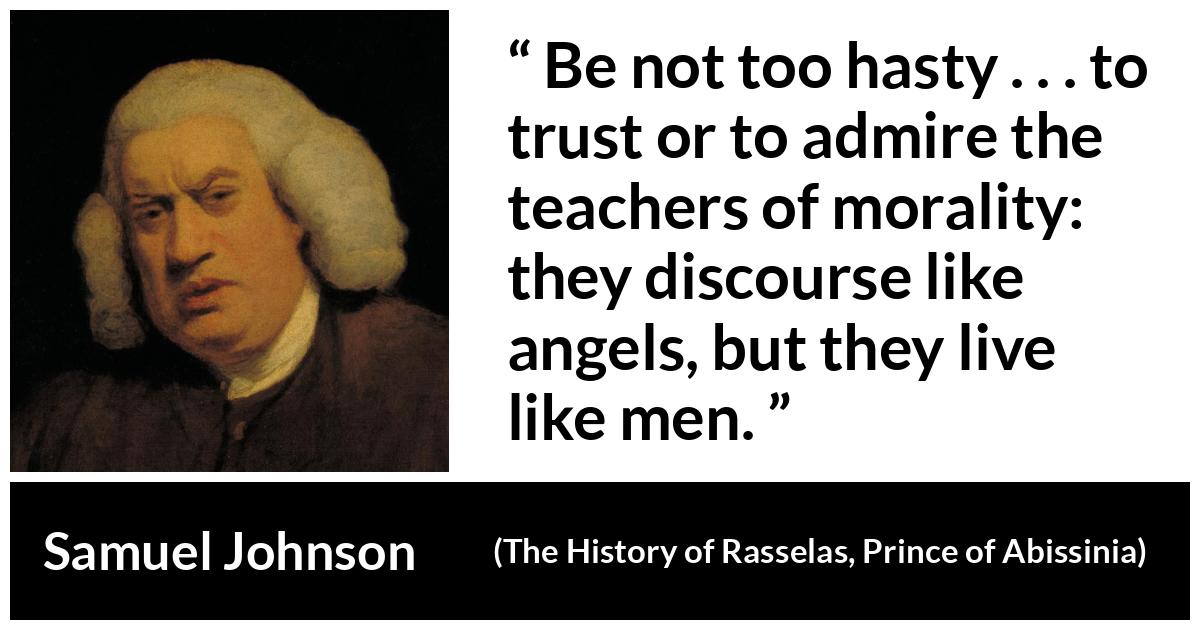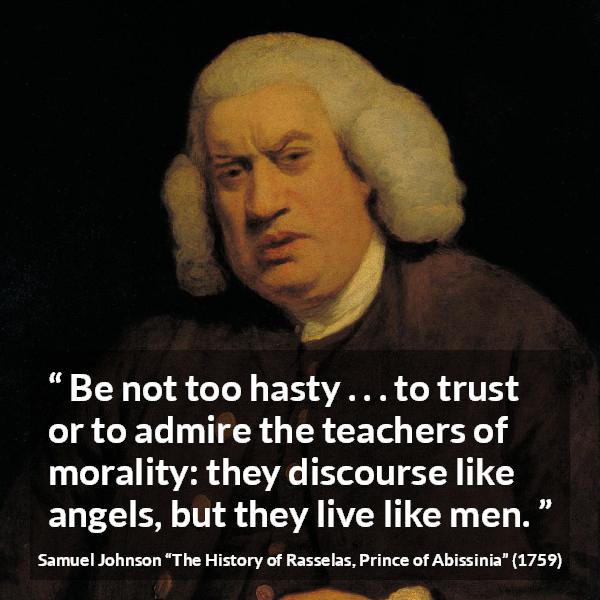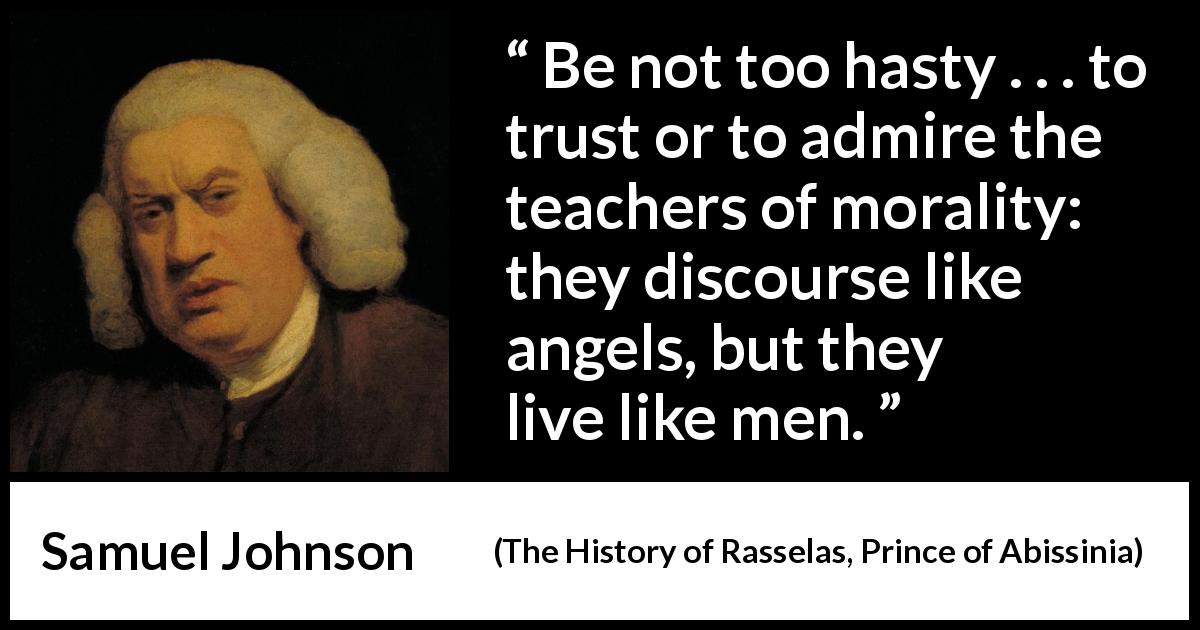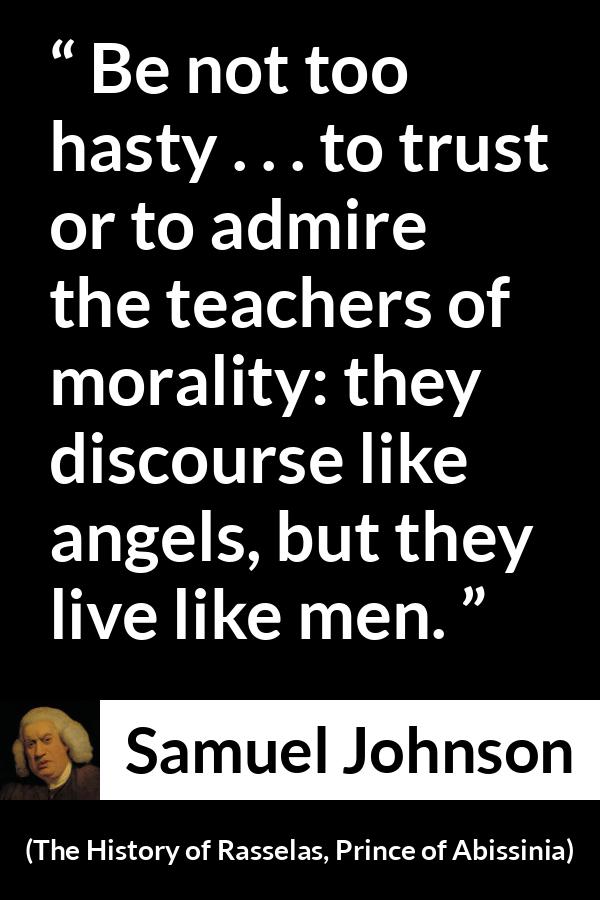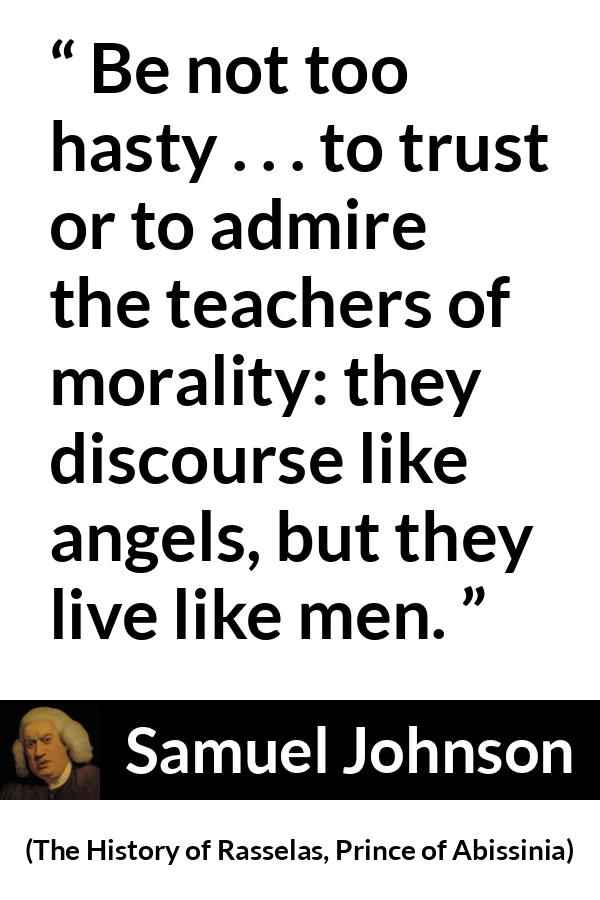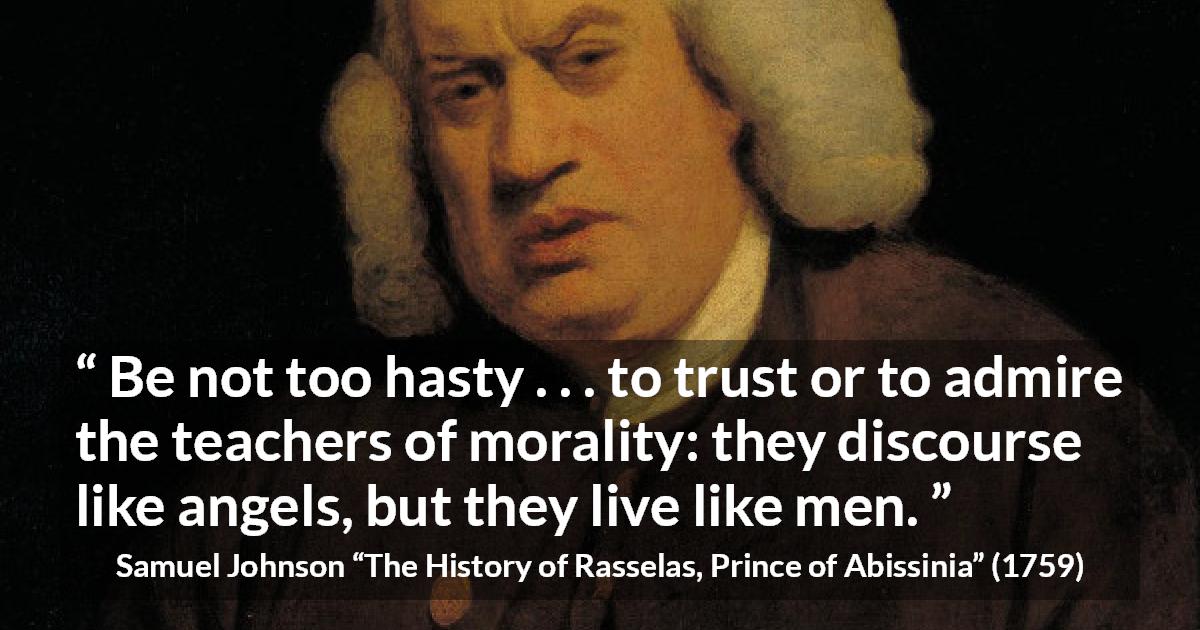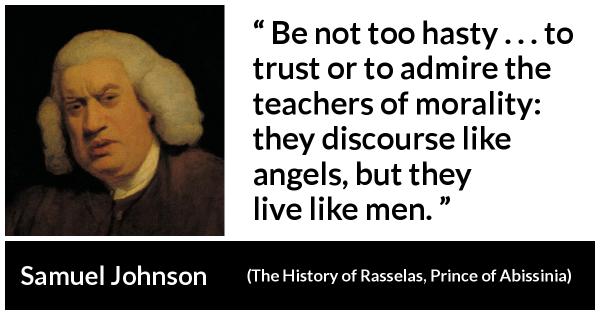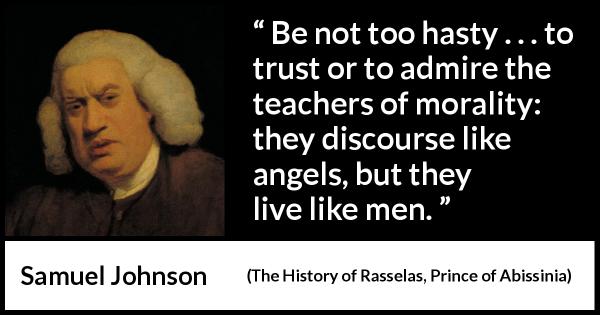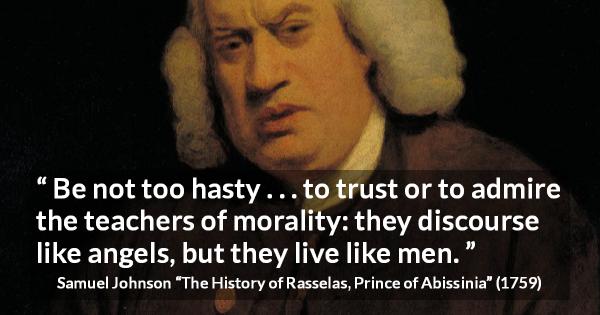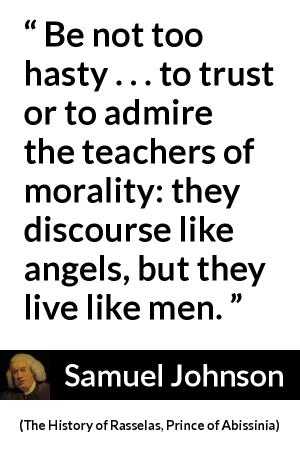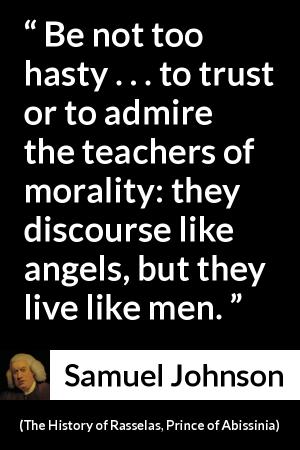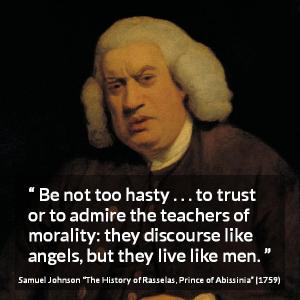“ Be not too hasty . . . to trust or to admire the teachers of morality: they discourse like angels, but they live like men. ”
Samuel Johnson, The History of Rasselas, Prince of Abissinia (1759). copy citation
| Author | Samuel Johnson |
|---|---|
| Source | The History of Rasselas, Prince of Abissinia |
| Topic | speech morality behavior |
| Date | 1759 |
| Language | English |
| Reference | |
| Note | |
| Weblink | http://www.gutenberg.org/files/652/652-h/652-h.htm |
Context
“«I have found,» said the Prince at his return to Imlac, «a man who can teach all that is necessary to be known; who, from the unshaken throne of rational fortitude, looks down on the scenes of life changing beneath him. He speaks, and attention watches his lips. He reasons, and conviction closes his periods. This man shall be my future guide: I will learn his doctrines and imitate his life.»
«Be not too hasty,» said Imlac, «to trust or to admire the teachers of morality: they discourse like angels, but they live like men.»
Rasselas, who could not conceive how any man could reason so forcibly without feeling the cogency of his own arguments, paid his visit in a few days, and was denied admission. He had now learned the power of money, and made his way by a piece of gold to the inner apartment, where he found the philosopher in a room half darkened, with his eyes misty and his face pale.” source
«Be not too hasty,» said Imlac, «to trust or to admire the teachers of morality: they discourse like angels, but they live like men.»
Rasselas, who could not conceive how any man could reason so forcibly without feeling the cogency of his own arguments, paid his visit in a few days, and was denied admission. He had now learned the power of money, and made his way by a piece of gold to the inner apartment, where he found the philosopher in a room half darkened, with his eyes misty and his face pale.” source
